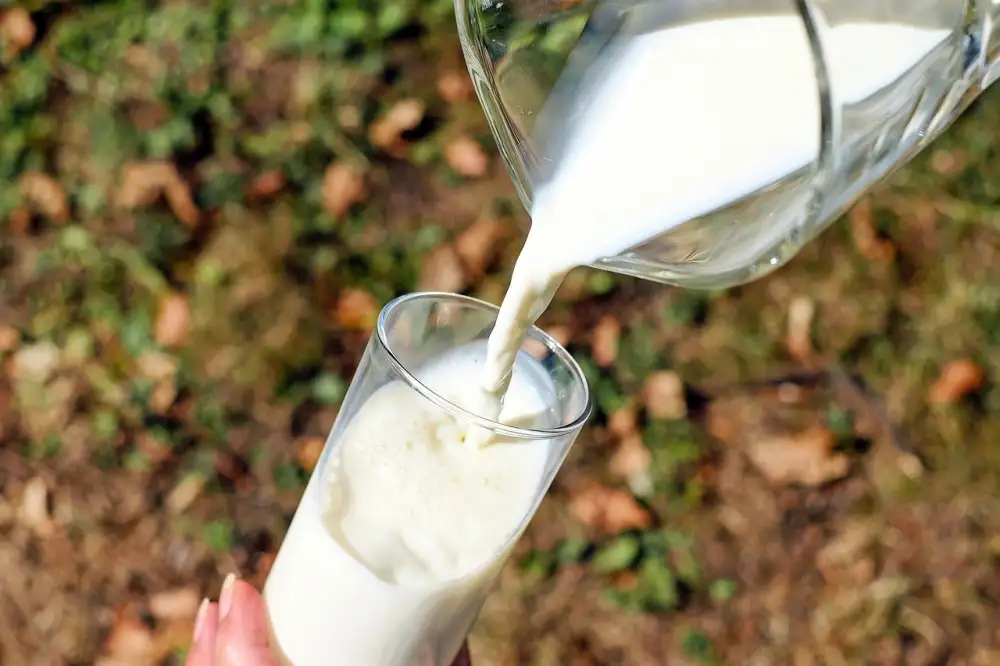Unveiling the Shelf Life Secrets: Does Almond Milk Go Bad? Discover the Spoilage Signs and Keep Your Health Intact!

Almond milk has become a popular alternative to dairy milk, thanks to its creamy texture and nutty flavor. But like any other perishable product, almond milk has a limited shelf life. As a consumer, it's important to understand how long almond milk can last and how to identify signs of spoilage. By knowing these factors, you can ensure that you enjoy your almond milk safely and avoid any potential health risks. So let's dive into the secrets of almond milk's shelf life and discover how to keep your health intact!
How Long Does Almond Milk Last?
Almond milk, like any other perishable food item, has a limited shelf life. On average, unopened almond milk can last for about 7-10 days past the printed expiration date when stored in the refrigerator at a temperature of 40°F (4°C) or below. However, it is important to note that this is just an estimate and the actual freshness may vary depending on various factors. Once opened, almond milk should be consumed within 7-10 days for optimal taste and quality. It is always advisable to check the expiration date before consuming almond milk to ensure its freshness and safety.
Factors Affecting Almond Milk's Shelf Life
Several factors can affect the shelf life of almond milk. One of the most important factors is the packaging. Almond milk that comes in aseptic packaging, such as cartons or bottles, tends to have a longer shelf life compared to those in open containers.
Another crucial factor is the temperature at which almond milk is stored. It is best to store almond milk in a cool and dry place, away from direct sunlight and heat sources. Exposure to high temperatures can cause the almond milk to spoil more quickly.
The quality of the almond milk also plays a role in its shelf life. If the almond milk has been contaminated during production or if it contains any additives or preservatives, it may have a shorter shelf life.
Furthermore, how well the almond milk has been handled and stored before you purchase it can impact its freshness. Always check for any signs of damage or leakage before buying almond milk.
Lastly, once opened, almond milk should be consumed within a certain timeframe. The general recommendation is to consume it within 7-10 days after opening, but this may vary depending on the brand and storage conditions.
By understanding these factors and taking proper precautions, you can ensure that your almond milk stays fresh for as long as possible.
Signs of Spoilage in Almond Milk
It is important to be able to recognize the signs of spoilage in almond milk to ensure that you are consuming it safely. One of the first indicators is a change in smell. If your almond milk has a sour or off-putting odor, it is likely spoiled and should not be consumed.
Another sign to look out for is the appearance of curdling or separation. If you notice chunks or clumps forming in your almond milk, it is a clear indication that it has gone bad. Additionally, any changes in color, such as a darkening or yellowing, can also indicate spoilage.
Taste is another important factor to consider. If your almond milk tastes sour or has an unpleasant flavor, it is best to discard it. Consuming spoiled almond milk can lead to foodborne illnesses and digestive issues.
Lastly, always check the expiration date on the packaging. Even if your almond milk does not show any obvious signs of spoilage, if it has exceeded its expiration date, it is safer to dispose of it.
By being aware of these signs of spoilage, you can ensure that you are consuming fresh and safe almond milk for optimal health benefits.
Proper Storage Tips for Extending Almond Milk's Freshness
Proper storage is crucial for maintaining the freshness and quality of almond milk. Here are some tips to help extend its shelf life:
1. Refrigerate promptly: After opening the almond milk, make sure to refrigerate it immediately. The cold temperature slows down bacterial growth and helps preserve its freshness.
2. Use airtight containers: Transfer any leftover almond milk into a clean, airtight container before storing it in the refrigerator. This prevents exposure to air, which can cause oxidation and spoilage.
3. Avoid cross-contamination: To prevent contamination, always use a clean spoon or pour the almond milk directly into a glass instead of drinking from the carton.
4. Keep away from strong odors: Almond milk easily absorbs strong odors from other foods in the fridge. Store it away from pungent items like onions or garlic to maintain its natural flavor.
5. Check for signs of spoilage: Regularly inspect the almond milk for any changes in color, texture, or odor. If you notice any abnormalities, discard it immediately to avoid consuming spoiled milk.
By following these storage tips, you can maximize the freshness and enjoy your almond milk for an extended period while ensuring both taste and health benefits are intact.
In conclusion, almond milk is a nutritious and delicious alternative to dairy milk. By understanding its shelf life and taking proper storage precautions, you can enjoy it safely and deliciously for a longer period. Remember to always check for signs of spoilage before consuming almond milk, such as changes in smell, texture, or taste. When in doubt, it's best to discard it. By following these tips, you can ensure that your almond milk stays fresh and maintains its quality, allowing you to continue enjoying its health benefits in your favorite recipes. So go ahead and elevate your cooking skills with the goodness of almond milk!
Published: 18. 12. 2023
Category: Health



